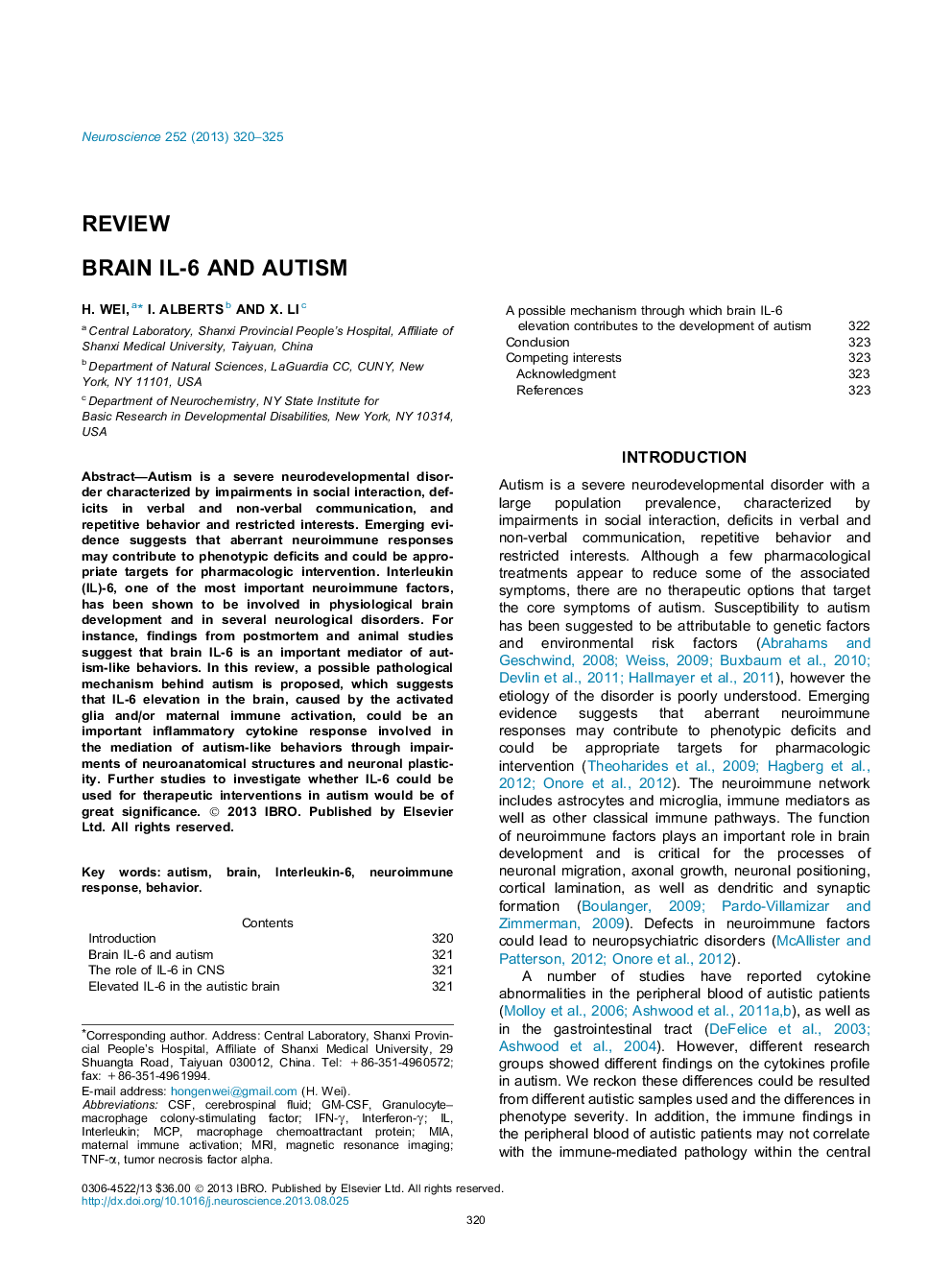| کد مقاله | کد نشریه | سال انتشار | مقاله انگلیسی | نسخه تمام متن |
|---|---|---|---|---|
| 4337814 | 1614824 | 2013 | 6 صفحه PDF | دانلود رایگان |

• Aberrant neuroimmune response may contribute to phenotypic deficits of autism.
• Findings suggest that brain IL-6, a neuroimmune factor, is an important mediator of autism-like behaviors.
• A possible mechanism through which brain IL-6 elevation contributes to the development of autism is proposed.
Autism is a severe neurodevelopmental disorder characterized by impairments in social interaction, deficits in verbal and non-verbal communication, and repetitive behavior and restricted interests. Emerging evidence suggests that aberrant neuroimmune responses may contribute to phenotypic deficits and could be appropriate targets for pharmacologic intervention. Interleukin (IL)-6, one of the most important neuroimmune factors, has been shown to be involved in physiological brain development and in several neurological disorders. For instance, findings from postmortem and animal studies suggest that brain IL-6 is an important mediator of autism-like behaviors. In this review, a possible pathological mechanism behind autism is proposed, which suggests that IL-6 elevation in the brain, caused by the activated glia and/or maternal immune activation, could be an important inflammatory cytokine response involved in the mediation of autism-like behaviors through impairments of neuroanatomical structures and neuronal plasticity. Further studies to investigate whether IL-6 could be used for therapeutic interventions in autism would be of great significance.
Figure optionsDownload high-quality image (82 K)Download as PowerPoint slide
Journal: Neuroscience - Volume 252, 12 November 2013, Pages 320–325